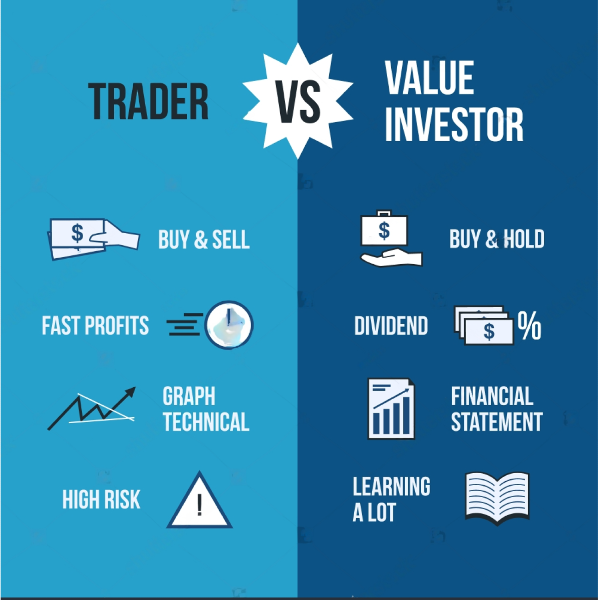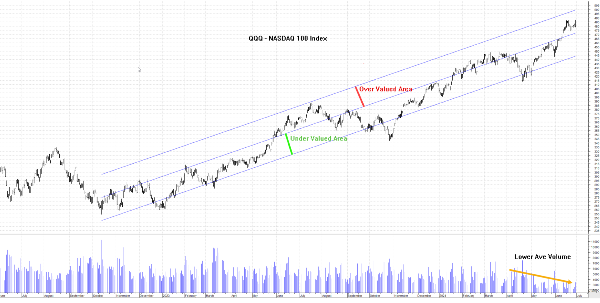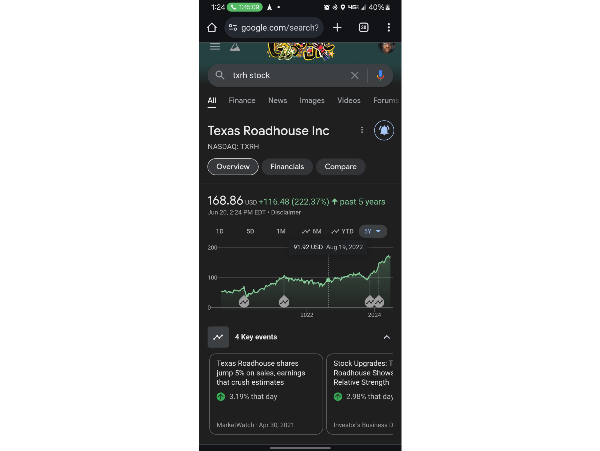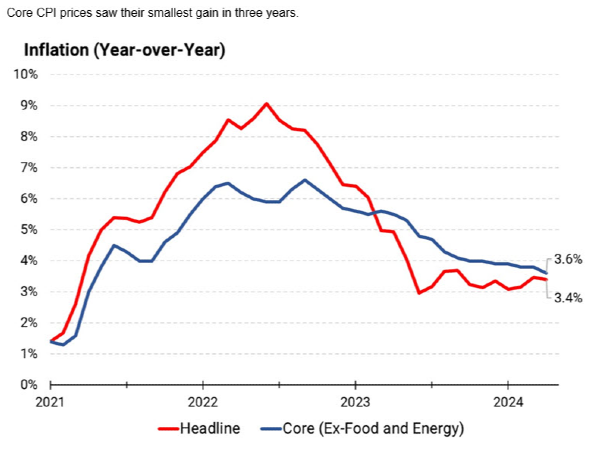Expertise provided by Darius Smith
Reviewed by Chaster Johnson
Getting into the stock market is a move, towards growing your wealth and gaining freedom. Figuring out the time to sell your stocks can be tough especially, for beginners. In this guide, we'll delve into the factors that should sway your choice when it comes to selling stocks. We'll tackle queries like when to sell and setting profit goals. We'll also cover the drop percentages that signal a sale, and when investors usually sell their stocks.
How Soon Should I Sell My Stocks?
For those just starting to invest, it's crucial to have patience. It's an idea to keep any stocks you purchase for a minimum of two years. Many beginners make the mistake of selling often settling for a 20% profit and missing the chance, for a potential 100% gain. Understanding how the market moves is important; stocks on a trend typically continue climbing especially if the company, behind them consistently increases its revenue and earnings. Holding onto stocks for a period lets you benefit from compounded growth and also helps you steer clear of taxes linked to short-term capital gains.
The Importance of Patience
Warren Buffett, an investor promotes the strategy of long-term investing. He famously said, "The stock market is designed to transfer money from the Active to the Patient." Keeping your investments for a minimum of two years allows the selected companies to implement their strategies and experience growth. This extended viewpoint can offer advantages to novice investors who are gaining familiarity, with the stock market.
Avoiding Short-Term Volatility
Market fluctuations, in the term, can be quite unsettling. It's important not to let them drive your investment decisions. Stock prices can swing dramatically due to factors like updates, global events, or quarterly financial results. Yet these ups and downs typically don't reflect the health and future potential of a company. Keeping a focus, on the run helps you steer clear of making choices based on every market shift.
At What Profit Should I Sell a Stock?
It's not always wise to set a profit goal when investing in stocks. Sometimes a great company can see a 1000% growth over a decade. Selling prematurely might cause you to miss out on significant profits. Then sticking to a predetermined profit margin novice investor should assess their investments by considering the company's performance and potential, for growth.
Avoiding Arbitrary Profit Goals
It can be quite tempting to cash in on gains of 20% or 50%. Doing so might suggest a need, for a thorough investigation. Quality investments have the potential to yield returns within the range of 20% to 50% and these profits can grow exponentially over time. By establishing profit goals you run the risk of overlooking the growth that successful stocks can offer.
Focusing on Company Fundamentals
Of aiming for profit goals pay attention to the core aspects of the companies you put your money into. Seek out companies that are experiencing revenue growth improving profit margins and have an edge, in their field. If the company's basic strengths stay robust and it keeps on implementing its business plans there might not be a need to sell even if you've reached your profit objectives.
At What Percentage Drop Should You Sell a Stock?
For new investors, the investment scene should avoid setting a sale threshold solely based on a fixed percentage drop. It's important to note that stock values can plummet abruptly but often bounce back quickly. Additionally, there are instances where malicious individuals may manipulate the market to artificially lower stock prices leading investors to make decisions based on emotions.
The Dangers of Emotional Selling
Selling based on emotions can be a mistake, for beginner investors. Feeling nervous and wanting to sell when a stock suddenly drops is understandable. Reacting impulsively like this can harm your investment plan. It's important to remember that market ups and downs are normal, in investing, and short-term price changes may not always accurately represent a company's worth.
Understanding Market Manipulation
Stocks that are less traded and have trading volume are more vulnerable, to being manipulated in the market. Dishonest individuals might sell an amount of stock to induce fear-driven selling among investors. When the stock price is deliberately reduced these manipulators can purchase shares at a discounted rate. To safeguard against becoming a target of schemes it is advisable to make decisions of triggers linked to percentage declines.
Traders vs. Investors

Traders and investors have approached. Traders look to make profits by capitalizing on short-term price changes and may rely on selling signals whereas investors prioritize creating long-term value. For novice investors embracing a long-term outlook can keep you on track with your objectives. Steer clear of the risks associated with short-term trading tactics.
At What Point Do Investors Want to Sell a Stock?
When deciding whether to sell a stock it's important to assess how well the company is doing, consider market trends and align, with your investment objectives. As a guideline for beginners holding onto a stock for two years is often recommended. If the company still shows potential, for growth and remains undervalued after this timeframe it might be wise to hold onto it.
Understanding the worth of a company is crucial, in value investing. This value is determined by factors like earnings, revenue, and growth prospects. Should a company's stock price fall, below its value it could remain an investment option even following a notable price surge. By giving importance to value you can make informed choices on when to divest from a stock.
Monitoring Market Trends
Make sure you stay updated on market trends and changes, in the industry that could affect your investments. For instance, if you've put money into energy firms it's an idea to monitor the shift towards renewable energy sources. If there are changes in the market dynamics it might be wise to reassess your investment strategy and think about selling off stocks that no longer fit, with growth patterns.
Setting Realistic Expectations
Investing in stocks, over the term can result in wealth growth but it is not mandatory to hold onto a stock indefinitely. It's wise to be ready to sell if the company's foundation weakens market conditions shift or you come across investment prospects. Keeping your expectations realistic and staying adaptable in your investment strategy enables you to make thought-out decisions.
Incorporating Expert Insights
To better understand the time to sell stocks let's delve into the advice shared by Darius Smith of wealthismyworth.com. Darius highlights the significance of having a defined investment plan and distinguishing between long-term investing and short-term day trading.
Insights from Darius Smith
Darius explains that day trading involves buying stocks waiting for a short-term price increase and then selling them. This strategy requires a skill set, including an understanding of math and significant experience. For investors, day trading is generally not advised due, to its complexity and high level of risk.
Instead, Darius recommends taking a long-term investment approach that could span, over 30 years or longer. While this may appear challenging it aligns to accumulate wealth over time. Nonetheless, he also acknowledges that there's no obligation to hold onto stocks for decades if your investment strategy shifts or if you spot investment opportunities.
Tax Considerations
Keeping stocks for a year or longer can offer tax advantages well. Normally long-term capital gains are taxed less, than short-term gains, which are treated as income. By holding onto your investments for a year you can reduce your tax obligations. Increase your profits after taxes.
Adapting to Market Changes
Darius emphasizes the significance of adjusting to evolving market circumstances. For instance, if you have put money into the oil sector and notice a move, towards energy it might be prudent to reassess your investment. Offloading shares, in sectors confronting enduring difficulties can assist you in reallocating your funds to areas.
Conclusion
Knowing the time to sell stocks plays a role, in successful investing. Beginners are advised to hold onto their stocks for two years as a starting point. It's best to avoid setting profit goals or selling triggers based on percentage drops as these tactics can cause missed opportunities and emotional decision making. Instead, focus on understanding the core aspects of the companies you've invested in assess their value, and keep yourself updated on market trends.
By taking a long-term view towards investing and staying adaptable in your approach you'll be better equipped to make thought-out decisions regarding when to sell your stocks. By incorporating expert advice and grasping the distinctions between investing and day trading you can further improve your investment strategy. Remember that patience and informed decision-making are factors in attaining lasting success, within the stock market.
For more information watch this video:
https://youtu.be/JepnCM14cMw





























Expertise provided by Darius Smith
Reviewed by Chaster Johnson
Getting into the stock market is a move, towards growing your wealth and gaining freedom. Figuring out the time to sell your stocks can be tough especially, for beginners. In this guide, we'll delve into the factors that should sway your choice when it comes to selling stocks. We'll tackle queries like when to sell and setting profit goals. We'll also cover the drop percentages that signal a sale, and when investors usually sell their stocks.
How Soon Should I Sell My Stocks?
For those just starting to invest, it's crucial to have patience. It's an idea to keep any stocks you purchase for a minimum of two years. Many beginners make the mistake of selling often settling for a 20% profit and missing the chance, for a potential 100% gain. Understanding how the market moves is important; stocks on a trend typically continue climbing especially if the company, behind them consistently increases its revenue and earnings. Holding onto stocks for a period lets you benefit from compounded growth and also helps you steer clear of taxes linked to short-term capital gains.
The Importance of Patience
Warren Buffett, an investor promotes the strategy of long-term investing. He famously said, "The stock market is designed to transfer money from the Active to the Patient." Keeping your investments for a minimum of two years allows the selected companies to implement their strategies and experience growth. This extended viewpoint can offer advantages to novice investors who are gaining familiarity, with the stock market.
Avoiding Short-Term Volatility
Market fluctuations, in the term, can be quite unsettling. It's important not to let them drive your investment decisions. Stock prices can swing dramatically due to factors like updates, global events, or quarterly financial results. Yet these ups and downs typically don't reflect the health and future potential of a company. Keeping a focus, on the run helps you steer clear of making choices based on every market shift.
At What Profit Should I Sell a Stock?
It's not always wise to set a profit goal when investing in stocks. Sometimes a great company can see a 1000% growth over a decade. Selling prematurely might cause you to miss out on significant profits. Then sticking to a predetermined profit margin novice investor should assess their investments by considering the company's performance and potential, for growth.
Avoiding Arbitrary Profit Goals
It can be quite tempting to cash in on gains of 20% or 50%. Doing so might suggest a need, for a thorough investigation. Quality investments have the potential to yield returns within the range of 20% to 50% and these profits can grow exponentially over time. By establishing profit goals you run the risk of overlooking the growth that successful stocks can offer.
Focusing on Company Fundamentals
Of aiming for profit goals pay attention to the core aspects of the companies you put your money into. Seek out companies that are experiencing revenue growth improving profit margins and have an edge, in their field. If the company's basic strengths stay robust and it keeps on implementing its business plans there might not be a need to sell even if you've reached your profit objectives.
At What Percentage Drop Should You Sell a Stock?
For new investors, the investment scene should avoid setting a sale threshold solely based on a fixed percentage drop. It's important to note that stock values can plummet abruptly but often bounce back quickly. Additionally, there are instances where malicious individuals may manipulate the market to artificially lower stock prices leading investors to make decisions based on emotions.
The Dangers of Emotional Selling
Selling based on emotions can be a mistake, for beginner investors. Feeling nervous and wanting to sell when a stock suddenly drops is understandable. Reacting impulsively like this can harm your investment plan. It's important to remember that market ups and downs are normal, in investing, and short-term price changes may not always accurately represent a company's worth.
Understanding Market Manipulation
Stocks that are less traded and have trading volume are more vulnerable, to being manipulated in the market. Dishonest individuals might sell an amount of stock to induce fear-driven selling among investors. When the stock price is deliberately reduced these manipulators can purchase shares at a discounted rate. To safeguard against becoming a target of schemes it is advisable to make decisions of triggers linked to percentage declines.
Traders vs. Investors
Traders and investors have approached. Traders look to make profits by capitalizing on short-term price changes and may rely on selling signals whereas investors prioritize creating long-term value. For novice investors embracing a long-term outlook can keep you on track with your objectives. Steer clear of the risks associated with short-term trading tactics.
At What Point Do Investors Want to Sell a Stock?
When deciding whether to sell a stock it's important to assess how well the company is doing, consider market trends and align, with your investment objectives. As a guideline for beginners holding onto a stock for two years is often recommended. If the company still shows potential, for growth and remains undervalued after this timeframe it might be wise to hold onto it.
Evaluating Intrinsic Value
Understanding the worth of a company is crucial, in value investing. This value is determined by factors like earnings, revenue, and growth prospects. Should a company's stock price fall, below its value it could remain an investment option even following a notable price surge. By giving importance to value you can make informed choices on when to divest from a stock.
Monitoring Market Trends
Make sure you stay updated on market trends and changes, in the industry that could affect your investments. For instance, if you've put money into energy firms it's an idea to monitor the shift towards renewable energy sources. If there are changes in the market dynamics it might be wise to reassess your investment strategy and think about selling off stocks that no longer fit, with growth patterns.
Setting Realistic Expectations
Investing in stocks, over the term can result in wealth growth but it is not mandatory to hold onto a stock indefinitely. It's wise to be ready to sell if the company's foundation weakens market conditions shift or you come across investment prospects. Keeping your expectations realistic and staying adaptable in your investment strategy enables you to make thought-out decisions.
Incorporating Expert Insights
To better understand the time to sell stocks let's delve into the advice shared by Darius Smith of wealthismyworth.com. Darius highlights the significance of having a defined investment plan and distinguishing between long-term investing and short-term day trading.
Insights from Darius Smith
Darius explains that day trading involves buying stocks waiting for a short-term price increase and then selling them. This strategy requires a skill set, including an understanding of math and significant experience. For investors, day trading is generally not advised due, to its complexity and high level of risk.
Instead, Darius recommends taking a long-term investment approach that could span, over 30 years or longer. While this may appear challenging it aligns to accumulate wealth over time. Nonetheless, he also acknowledges that there's no obligation to hold onto stocks for decades if your investment strategy shifts or if you spot investment opportunities.
Tax Considerations
Keeping stocks for a year or longer can offer tax advantages well. Normally long-term capital gains are taxed less, than short-term gains, which are treated as income. By holding onto your investments for a year you can reduce your tax obligations. Increase your profits after taxes.
Adapting to Market Changes
Darius emphasizes the significance of adjusting to evolving market circumstances. For instance, if you have put money into the oil sector and notice a move, towards energy it might be prudent to reassess your investment. Offloading shares, in sectors confronting enduring difficulties can assist you in reallocating your funds to areas.
Conclusion
Knowing the time to sell stocks plays a role, in successful investing. Beginners are advised to hold onto their stocks for two years as a starting point. It's best to avoid setting profit goals or selling triggers based on percentage drops as these tactics can cause missed opportunities and emotional decision making. Instead, focus on understanding the core aspects of the companies you've invested in assess their value, and keep yourself updated on market trends.
By taking a long-term view towards investing and staying adaptable in your approach you'll be better equipped to make thought-out decisions regarding when to sell your stocks. By incorporating expert advice and grasping the distinctions between investing and day trading you can further improve your investment strategy. Remember that patience and informed decision-making are factors in attaining lasting success, within the stock market.
For more information watch this video:
https://youtu.be/JepnCM14cMw